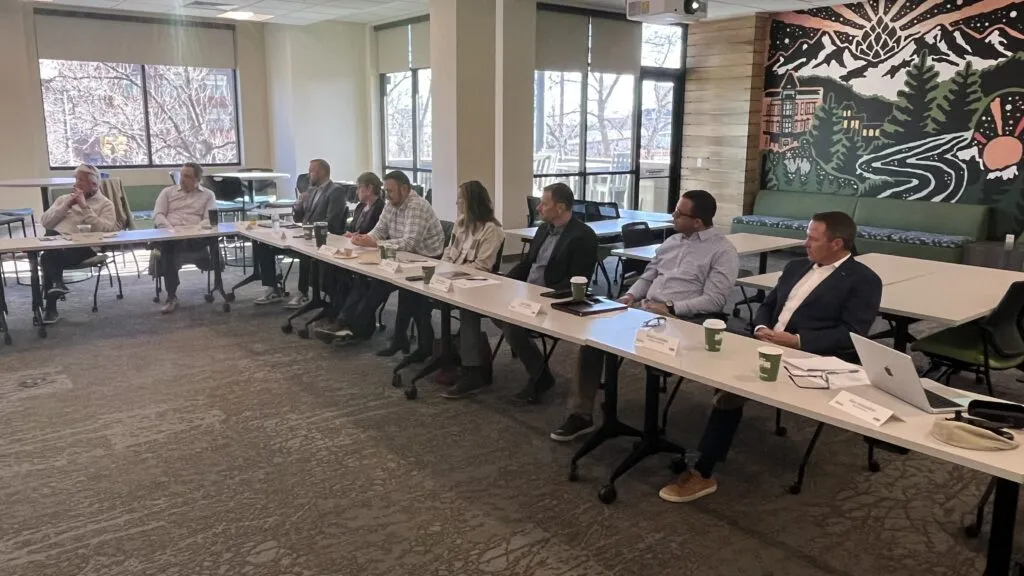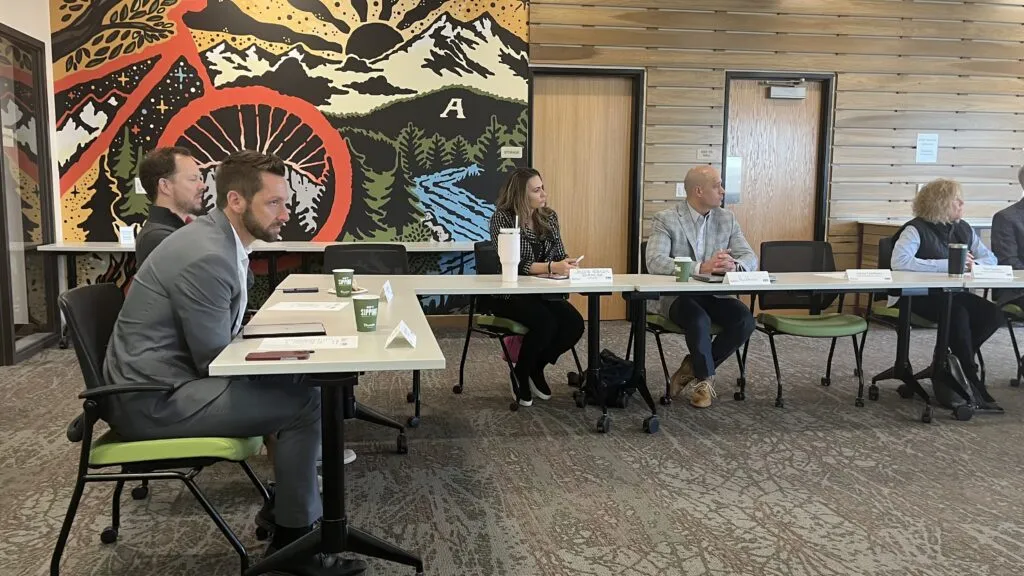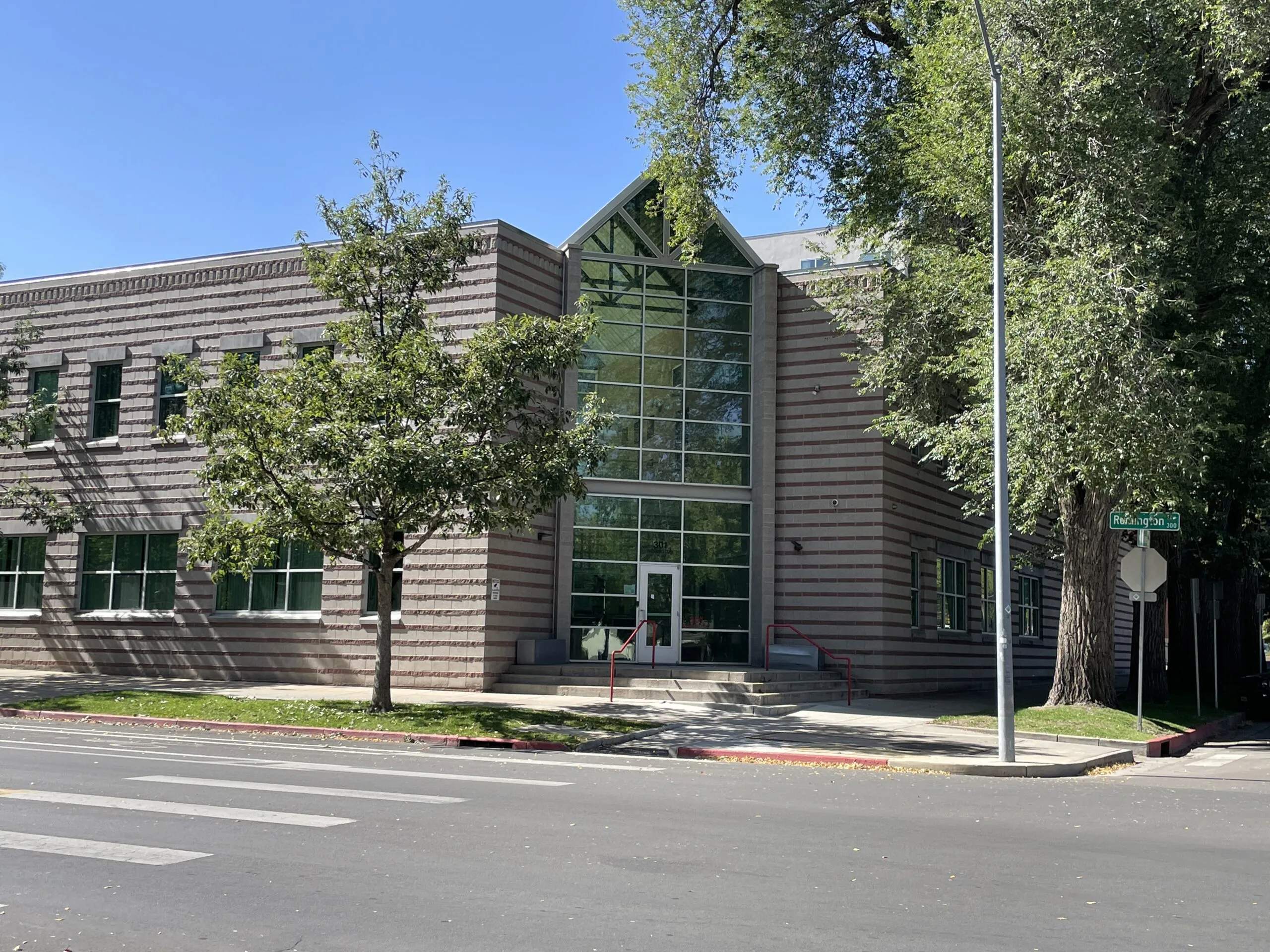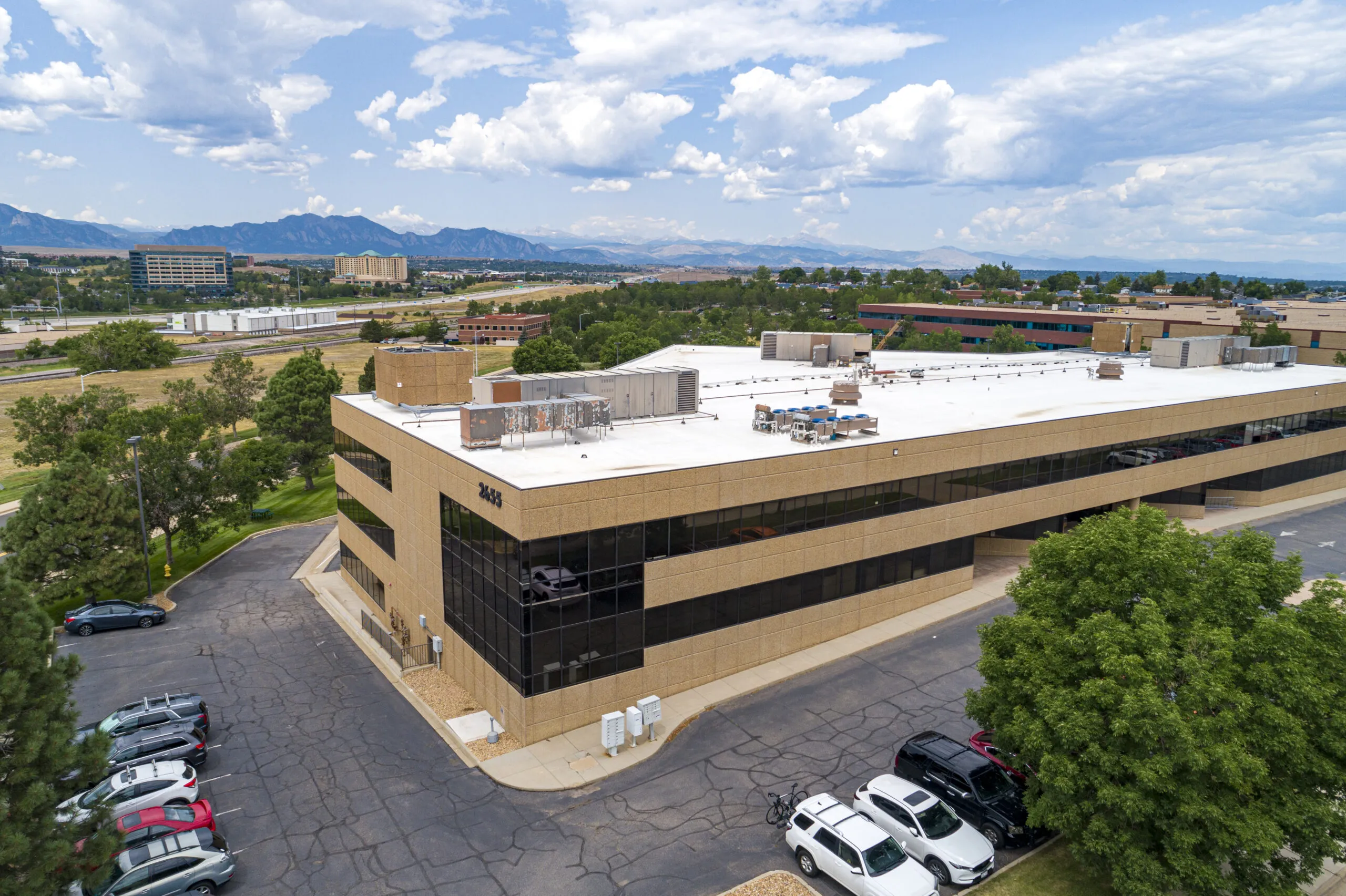CEO Roundtable: Realtors predict ‘year of uncomfortableness’

FORT COLLINS — For Peter Kast, the long-time commercial Realtor with CBRE — a real estate professional with perhaps the most experience with regional trends — to say that “we’re in a year of uncomfortableness,” those with less experience might want to take note.
The industry is seeing trends that are somewhat unusual, maybe unpredictable, industry professionals said at a BizWest CEO Roundtable on the topic of real estate. The discussion was held Tuesday morning at Elevations Credit Union in Fort Collins.
The issues: continuing high interest rates, continuing inflationary pressures, an undersupply of residential real estate in the face of major demand, an oversupply of industrial space after a period of undersupply, a shift away from offices and to smaller spaces, and, the elephant in the room, political upheaval, particularly in Loveland.
SPONSORED CONTENT
“Strife at the top level (the council), no leadership below that (the departure of key staff) and (remaining) staff walking on eggshells,” Nathan Klein, managing broker with LC Real Estate Group LLC in Loveland, characterized how he sees the Loveland political situation. “I’m very concerned about that,” he said.
Others concurred with his assessment.

“Loveland used to be so innovative in how it did business,” said Chad Walker, CEO of Pinnacle Consulting Group.
“When doing small projects, the inability of the city of Loveland to do a building permit in a timely manner (is an issue),” said Cobey Wess, vice president of SVN/Denver Commercial LLC. “No one gives a reasonable answer. It’s bizarre and really bad for business.”
Politics aside, Realtors also face unsettled circumstances on other fronts.
Said Kast, “When Paul Volker was at the Fed, you knew what the issue was (runaway inflation). Now, you don’t necessarily know what’s happening. We’ve absorbed little institutional money into Northern Colorado. We might be a little overbuilt for industrial. We don’t have a lot of lab space. But people figure out how to make things work.”
Clyde Wood, senior vice president for commercial with McWhinney Real Estate Services Inc., said that while regulation may be an issue, it’s always been there.
“It’s like parking. I don’t want to build where it is easy to park, because there aren’t people there,” he said. He said doing difficult projects, even when regulation is a factor, are the most rewarding.
“Industrial has turned into a trickle,” Wood said, after eight years of fairly robust demand in the region. “There are pockets of oversupply,” he said, noting that McWhinney saw unfulfilled demand several years ago and built to accommodate. The market was “steady but not deep.”
Others, such as Texas-based Hines Interests Limited Partnership, saw what was happening in Northern Colorado and entered the market. Others followed.
“Office has changed forever, probably. The only thing we know for sure is that in five years or 10 years, it will have changed significantly,” Wood said.
Brandon Wells, CEO of The Group Inc., said Realtors in viewing the marketplace need to “understand the chess pieces” that they hold. “The various levels of government that we deal with, the regulatory compliance. How can we bring the sectors together for solutions for the region?”
Darin Atteberry, market president for Elevations Credit Union and the former Fort Collins city manager, said that Fort Collins will top out in population at about 250,000, while Greeley will reach 400,000 or 500,000. Affordable housing will remain issues throughout the region.
“Communities of the future will partner with the private sector to create affordable housing. The business community has to invest in those relationships; just like supplier relationships. You can’t make friends when you need them,” he said of the need to interact with council members now.
Interest rates, inflation, sales and leases
Paul Watkins, senior commercial loan officer with Elevations, said that investors predict that interest rates as set by the Federal Reserve Board will decline by four one-quarter percentage point reductions over the next year. “But if inflation kicks up, there could be an increase in rates,” he said.

Josh Guernsey, co-founder of Waypoint Real Estate, said if rates remain high, it will continue to be difficult “to make deals pencil.” He said he’s concerned about tenants, who are seeing declining margins because of interest rates and massive property tax increases.
Property owners are facing maturing loans, but lenders seem to be willing to extend in hopes of relief to come, he said.
“Deals we’re involved with have a lot of equity, and those are pretty healthy. Our vacancy rates are 5-7%, and there’s small rent growth. The underlying fundamentals support higher debt loads. They’re (property owners, tenants) certainly are not walking away. We’re not seeing the stress that they’re seeing in the metro markets,” Guernsey said.
Still, that’s not the experience that Julia Crawmer, asset manager and broker with Mountain-N-Plains Inc. has noted.
She deals with small properties, many of them in downtown Fort Collins, and they’re facing pressure from national companies.
“Businesses are renewing leases or closing completely in my portfolio,” she said. Those that are renewing are doing so at five-year terms with 3% escalation clauses in the rates, she said.
“There’s a lot of movement” of businesses from one location to another in search of better terms. “In the ’80s, they were doing owner-carried deals; history could repeat itself,” she said.
Klein said the deal environment includes more owner-financed transactions.
“Of the last three deals, two were SBA loans and one was owner-carried. We’re seeing aging clients who are tired of managing their properties, and they’re willing to consider seller financing and installment sales,” he said.
Small Business Administration volume is also increasing, he said. Those loans are “painful to get to the finish line.” Buyers are asked to put more equity into the transaction, which provides some cushion down the road if loan renewals are needed.
Patty Spencer, broker/owner for Commercial Real Estate Brokers, said bankers like to deal with owner-occupied properties. “Come right in; we’ll loan all you want,” she quipped.
Jared Goodman, senior vice president of commercial brokerage Cushman & Wakefield, said his company experienced property refinances in the 2020 time frame, and those transactions were for mostly five-year time periods, meaning they’re coming due this year and next.
“If interest rates stay high and cap rates climb, we see a shift happening; if rents don’t increase quick enough, those (with) DCRs (debt coverage ratio issues) will be at risk. … If they don’t stick their heads in a hole, the banks are going to work with them. That’s for Northern Colorado. If you look in San Francisco and other areas, those are completely different stories,” Goodman said.
Wess said she’s noticed a trend of landlords wanting shorter lease terms in hopes of conditions improving in the long term.

Tenants, even those who no longer need as much space because of work-from-home trends, seem to be holding onto more space than they might need, Wess said. Some may be subleasing space.
“If you think you need 3,000 square feet now and you have 5,000, you might think better of it (moving or downsizing),” said Jake Hallauer, president of NAI Affinity in Fort Collins. “You may see people just extend and deal with it and hope to grow into it,” he said.
McWhinney’s Wood said that “the way I view office, if you’re not an A you’re an F. That’s how we view malls. The A offices are doing quite well, and that’s definitely the case in Denver.” Wood said the company’s Dairy Block development is full and raising rents. “Newer office space with more amenities, we’re seeing strength in that sector.”
Kast said CBRE is seeing some companies hold onto their space, even with fewer workers on site, because their margins remain strong. “They can afford to keep their larger space. It (work-from-home) is not the economic event that you’d expect. The rent is still being paid. The company is doing as well. The thought is that if we give up this space now, and we need the people back, where are we going to put them,” he said.
Gage Ostholff, broker/partner with Realtec Commercial Real Estate Services Inc. in the Greeley market, said the Greeley office market has tended to lag the rest of the region. “Until two or three years ago, we were recovering from the last downturn. Some say that the Greeley office market may have been dead, but was it ever alive,” he said. Greeley, with the exception of the largely vacant State Farm buildings in east Greeley, is one with small offices.
“We’re seeing some rent appreciation, just in time for property taxes to wipe it out,” he said.
Kast asked The Group’s Wells whether builder-inspired interest buy-downs and low down payment deals in the housing market are driving up median prices.
Wells said that “lenders and builders have used this to keep demand strong. But it’s mostly a case of supply and demand” that is causing median prices to escalate. “We’re undersupplied … the no-growth movement, the regulatory landscape will further amplify the supply problem. I don’t see the artificial lowering of rates to be affecting the price of homes,” he said.
“If we don’t solve the supply issue, just look down south to Boulder County to see what happens when you control supply,” Wells said. Boulder County, particularly the city of Boulder, has the highest median resale prices in the region at $1.325 million based on the latest Information and Real Estate Services LLC report.
Wood said he was surprised by the success of a large commercial/industrial development at Mead, the Elevation25 development.
“You have Denver and then Northern Colorado. The Mead project doesn’t seem to serve either market, but they’ve had success. That was a curious one for us,” he said.
Walker asked whether the Mead development came about because of political challenges in Loveland, or because land was cheaper. Rail service at that site was likely a factor, he said.
Kast said that “utilities and water” are greater limiting factors than city governance. “If you need big water, do you want to build in the Little Thompson Water District,” he asked, then answered “that isn’t the place to go.” He also said that some wastewater districts need to be careful with potential industrial occupants because one major spill could take out an entire district’s capacity.
“Government is important, but utilities are more important,” Kast said.
Jason Woolard, chief operating officer of Pinnacle Consulting Group, said that access to special districts are important to developers.

“We’ve seen, (special districts are) a necessary vehicle to use. Cities know it. Developers know it. With election cycle timing, getting through the political process is a big issue,” Woolard said. With new model service plans, mill levy limitations and rising costs to operate a district, some special districts don’t work.
“Greeley is good for opportunity. Johnstown is challenging. Loveland has a moratorium. Up and down the Front Range” there are workable districts in Firestone and Mead, he said.
Residential bright spots
Wells said that Northern Colorado continues to see strong demand and the desire of people to live and work in the region.
“We’ll continue to see the three predominant growth counties as Larimer, Weld, and El Paso (Colorado Springs). Weld continues to be the center of the growth. As more jobs come into Weld, it’s more affordable. … We’re paying the price for lack of infrastructure growth along I-25,” he said.
Spencer asked what percentage of homes are sold for cash, and Wells estimated that about 32% are cash purchases.
“Part of the problem with residential real estate is that there is so much investment money coming in; it cuts out the little guy,” Spencer said.
Wells said that the “Baby Boomer generation is holding on to the largest swath of product.”
He cited Timnath as a “perfect example of what’s happening. Rooftops come in, then commercial. Now the next big area to fall will be along (U.S.) Highway 34.
“We’re 10 years behind Austin, Texas. See what has happened there,” he said.
BizWest’s CEO Roundtables in Northern Colorado are sponsored by law firm Berg Hill Greenleaf Ruscitti, represented Tuesday by Ashley Cawthorn; Elevations Credit Union, represented by Darin Atteberry, Paul Watkins and Jessica Robinson; and accounting firm Plante Moran, represented by Josh Billiard.
The real estate industry is seeing trends that are somewhat unusual, maybe unpredictable, industry professionals said Tuesday at a BizWest CEO Roundtable.




